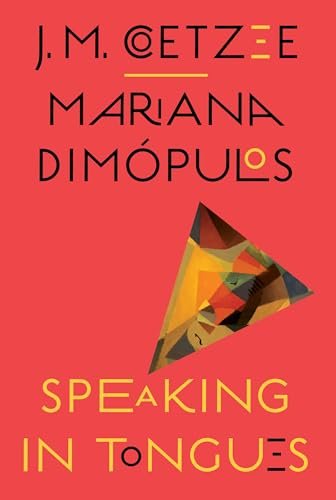
20 Jul Book Review of Speaking in Tongues
Personal Reflections on J. M. Coetzee’s Speaking in Tongues
When I first picked up Speaking in Tongues by J. M. Coetzee, I did so with a curious blend of excitement and apprehension. As a devoted admirer of Coetzee’s profound works—each more layered and challenging than the last—I found myself eager yet slightly intimidated by what he might have to say this time. Known for wrestling with themes of colonialism, identity, and human suffering, Coetzee has a distinctive way of forcing readers into uncomfortable but essential reflections. Little did I know, this latest offering would be as fulfilling as it was thought-provoking.
In Speaking in Tongues, Coetzee explores the complex interplay of language, identity, and the often-fragile relationships we forge with one another and ourselves. The narrative intricately weaves together the stories of various characters, each grappling with their own sense of self and the alienation that often accompanies cultural dislocation. One of the most powerful aspects of the book lies in its ability to articulate the unvoiced tensions that simmer beneath everyday interactions—making us question how we communicate (or fail to communicate) in a world rife with misunderstanding.
As I journeyed through the pages, Coetzee’s signature austere prose felt both alien and familiar. The pacing of the narrative, while contemplative, drew me deeper into the introspective lives of the characters. I often found myself pausing, reflecting on Coetzee’s sharp observations about the essence of dialogue—how words can unite or divide us. For instance, one particular quote resonated powerfully: “To speak is to risk misunderstanding.” This encapsulated not just the book’s essence but also the intricacies of our own human connections. How often do we find ourselves in similar predicaments, trying to bridge the gap of language and emotion?
Coetzee’s use of metafictional elements also holds a mirror to the act of storytelling itself, inviting readers to ponder the morality of narration—who gets to tell a story, and whose voices are marginalized? This layer of self-referentiality made me acutely aware of my role as a reader and a participant in these narratives. The characters’ struggles with their own languages make this exploration even more poignant, given Coetzee’s own background as a writer navigating multiple cultural identities.
What truly struck me about Speaking in Tongues is its quiet gravity. Coetzee writes with a canny understanding of human nature, capturing the essence of conflict and resolution within the self. His exploration of silence—what is unspoken—lingers in the air long after the last page is turned. It’s as if he’s inviting us to embrace articulation in our own collective dialogues while also recognizing the power of silence.
In conclusion, I would wholeheartedly recommend Speaking in Tongues to readers who relish literary fiction that invites contemplation and self-reflection. If you’re a fan of Coetzee’s earlier works or simply drawn to stories that challenge preconceived notions of identity and communication, this book will resonate with you. For me, reading it was not just an intellectual pursuit; it was a personal journey—a reminder of the delicate dance of connection that defines our existence. Coetzee, in his inimitable style, continues to challenge and inspire, leaving readers poised at the frontier of thought and emotion.









